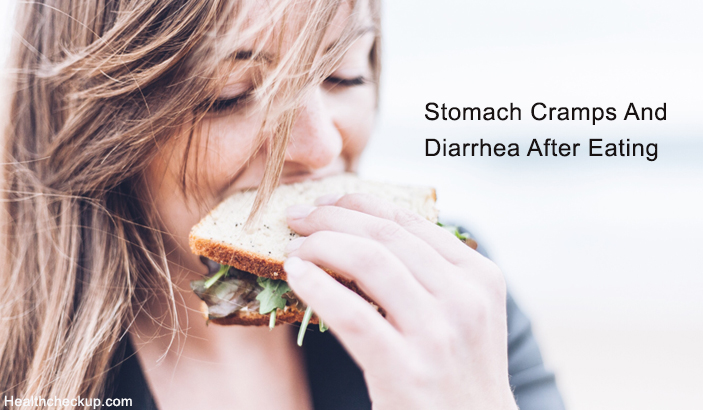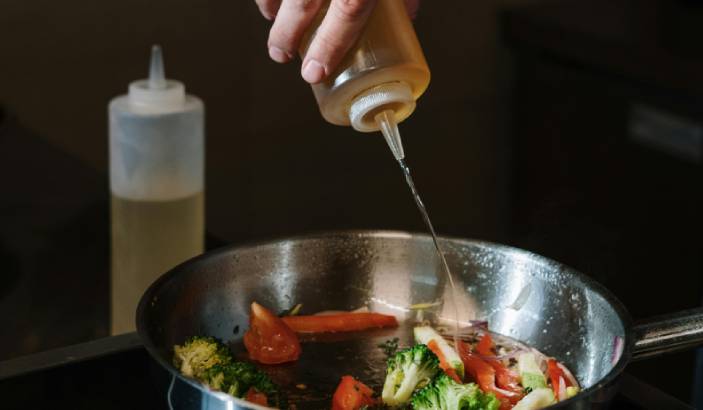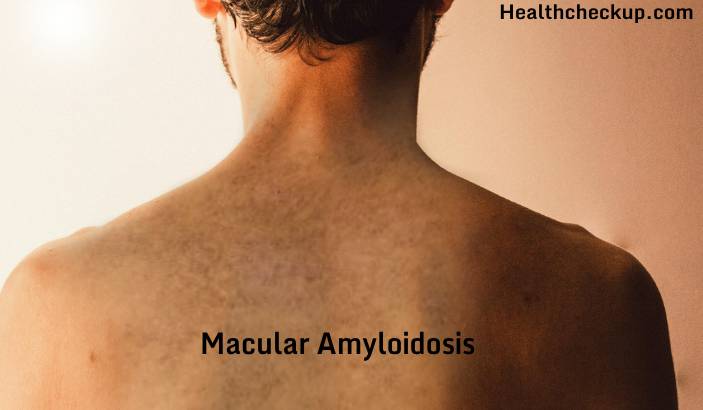Many factors can cause stomach discomfort or diarrhea after eating. Diarrhoea simply means having a loose or watery stool. According to research, most people experience diarrhoea or stomach discomfort once or twice every year. Typically, it lasts for less than three days, and it’s often treated with over-the-counter medicines. This condition is however very common and in most cases not serious. If you experience stomach cramps and diarrhea after eating and then it goes away, it means that it is caused by food.
You May Experience The Following Symptoms
- Cramps
- Watery stools
- Loose stools
- A Sudden need to have a bowel movement
- Belly bloating
- Nausea and vomiting
If you experience watery stool for a more extended period, you should drink more water. Diarrhea causes you to lose fluids, and if they are not replaced, you may become dehydrated thereby causing severe complications.
What Causes Abdominal Pain And Diarrhea After Eating?
Identifying the cause of your condition can help you to work with your health care provider on the effective treatment plan. Here are some situations that may be to blame for your symptoms;
1. Viral Infection
Viral infection is a common cause of stomach cramps and diarrhea. They can cause diarrhea as well as make your digestive track super sensitive. The effects of viral infections usually last for a few days and then the symptoms subside. You may consult with your doctor for treatment.
2. Food Poisoning
It’s hilarious that our bodies can identify what they should or shouldn’t eat. In case you happen to eat contaminated food or drink contaminated water, the most probable way your body will get rid of it is through diarrhea, and you may feel some discomfort in the stomach. For instance, diarrhea after eating salad may mean that the salad was contaminated. Some cases of food poisoning are usually severe and if symptoms persist, immediately seek the help of a doctor.
3. Lactose Intolerance
In case you have an allergic reaction to lactose- a type of sugar mainly found in dairy products, then you may experience stomach cramps and diarrhea. if you take foods with lactose.
Sugar malabsorption is another condition related to lactose intolerance. In this case, one’s body is unable to absorb sugars such as fructose and lactose properly. If these sugars reach the intestines, they may result in gastrointestinal issues as well as diarrhea.
4. Toddlers Diarrhea
Diarrhea in toddlers and young children is very common. The condition is mainly caused by drinking a lot of sugar juices and other drinks. The increased amount of sugar in the blood causes the water to enter the intestines- this makes the stool watery.
5. Antibiotics
Some antibiotics are said to cause stomach upset as well as diarrhea. However, these symptoms usually resolve once the antibiotics are stopped.
6. Constipation
Constipation usually occurs when the stool moves too slowly through the digestive tract and cannot be eliminated normally. This may present stomach cramps.
7. Crohn’s Disease
The Crohn’s disease is a serious inflammatory bowel disease which causes inflammation in the digestive tract. This condition usually results in severe pain, bloody stools, and chronic diarrhea among other symptoms. This condition has severe complications and should be treated effectively.
8. Peptic Ulcers
This refers to sores developed on the inner lining of the stomach and the upper part of the small intestines. When you eat, you may feel a burning stomach pain which is more aggravated by spicy foods.
In most cases, simple diarrhea usually resolves by itself or with medications. However, stomach cramps and diarrhoea caused by serious illness such as ulcers may require immediate medical attention.
In most cases, simple diarrhea usually resolves by itself or with medications. However, stomach cramps and diarrhoea caused by serious illness such as ulcers may require immediate medical attention.
Treatment
Most symptoms of stomach cramps and diarrhea go away over time and they can be managed at home.
Stay hydrated – This means you should take enough fluids to replace the lost fluids. Consider taking water or juice that doesn’t contain components that may worsen your condition such as caffeine or pulp.
Replace lost electrolytes – Also, use fluids with salt and sugar to help replace the lost electrolytes.
1. Eat Bland Foods
Eat foods like bananas, soup, rice, and crackers. They are easy to digest, and they can also help harden the stool.
2. Medications
- Simethicone – Helps relieve stomach bloating
- Acid-Reducers – Such as Zantac and Pepcid. They reduce the production of stomach acids for 12 hours.
- Antacids – They include Alka-Seltzer, Tums, and Rolaids. They help neutralise the stomach acids to reduce stomach burning and cramps.
- Antidiarrheals – Such as Imodium, they stop diarrhoea as well as other related symptoms.
- Pepto – Bismol. It coats the esophagus lining to reduce burning as well as treat diarrhoea and nausea.
- Laxatives And Stool Softeners – They help relieve constipation and bloating
- Fibre Supplements – Such as Metamucil and Benefiber. They produce regular bowel movements.
- Acetaminophen (Tylenol) – They relieve pain without causing irritations in the stomach like ibuprofen, aspirin, and naproxen.
You Should Call Your Doctor Immediately If You Happen To Experience Any Of The Following:
- Blood in stool
- Dehydration symptoms such as dry mouth, decreased urine, sunken eyes.
- Severe stomach pain
- Fever above 100 F
- Worsening diarrhoea symptoms
- Rectal bleeding, lack of appetite, severe vomiting, and anaemia.
The best way to treat stomach cramps and diarrhoea is by talking to your pharmacist or doctor for diagnosis and effective treatment.
Prevention
Stomach cramps and diarrhoea caused by infection or food poisoning can be prevented by practicing hygiene measures and avoiding eating street foods. Hygiene measures may include washing your hands thoroughly after;
- Changing a diaper
- After visiting the bathroom
- Before and after preparing or eating foods
- After touching infected surfaces
Other Measures
- Avoid foods that have previously caused these problems
- Eat foods rich in fruits and vegetables
- Drink enough water
- Reduce caffeine and alcohol intake
- Reduce stress- they can also contribute to conditions such as diarrhoea and stomach problems such as ulcers.
- Practice mindful eating
Although diarrhoea and stomach upsets could be as a result of one of the health conditions discussed here, it could be a sign of something mere or severe. Therefore, if you are not sure about what’s causing stomach cramps and diarrhoea after eating, then consider talking to your doctor. Make sure you present any new or ongoing digestive symptoms to your doctor for effective treatment.
Medically Reviewed By

Catherine is a dedicated freelance health and science writer committed to excellence and professionalism. She specializes in health topics including diet and nutrition, immune-related diseases, surgery, and cancer.









